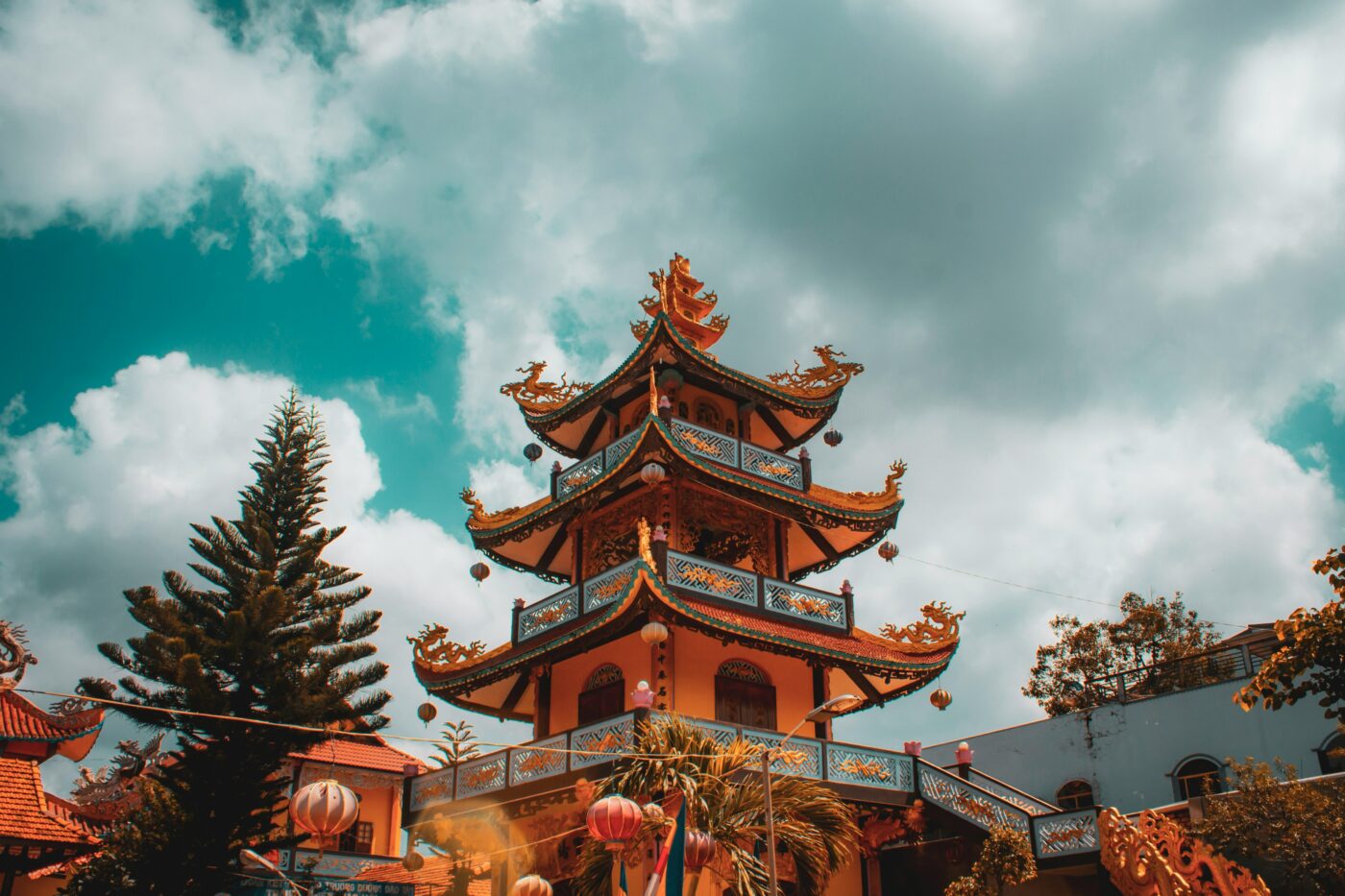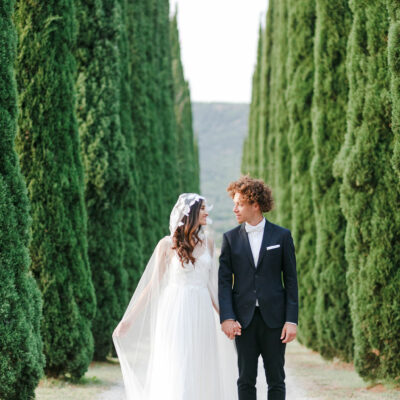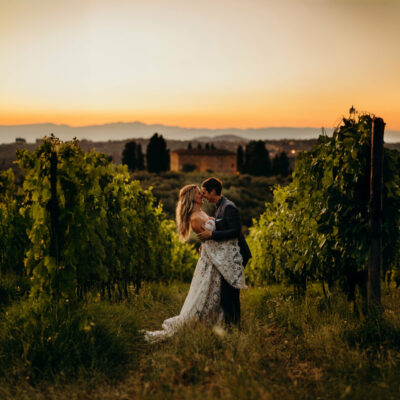 How do you get legally married in Italy for a destination wedding?
How do you get legally married in Italy for a destination wedding?
How do you get legally married in Vietnam for a destination wedding?
A wedding in Vietnam ticks all the boxes for Aussie couples: stunning landscapes, rich culture, and budget-friendly options. Who can resist the idea of a wedding and honeymoon in one package? However, before we dive into the fun of planning your dream wedding abroad, you’ll need to take care of the legal side of things.
How do you make sure that you’re not just running into the sunset, and that your marriage is officially recognised by the authorities?
Option 1: Have your official legal ceremony at home
We always recommend getting legally married in Australia before flying, as it’s often less stressful than navigating the paperwork overseas. Most couples choose to marry at home, and they’ve told us that it’s much easier to relax and enjoy the moment once they reach their dream destination. You can still celebrate with a symbolic ceremony and exchange vows in front of your friends and family – which is exactly what those stunning beachfront settings are made for.
Option 2: Legally marry in Vietnam with careful planning ahead
Getting legally married in Vietnam is definitely an option – it just requires extra time and careful planning. You’ll need to prepare your most important documents, have them translated into Vietnamese, and visit the local consulate and government offices to file your paperwork. We’ve compiled a step-by-step guide to getting married in Vietnam if you’d like to have your legal wedding here as an Australian citizen. However, we highly recommend checking the Australian Embassy website for the latest updates.

How to get legally married in Vietnam as foreigners
This article is not intended to be read as legal advice. Before you head to Vietnam, we recommend you familiarise yourself with the legal requirements for marrying there.
Step 1: Check the latest legal requirements to marry in Vietnam
Foreigners can legally marry in Vietnam – given that one partner resides in Vietnam and holds either temporary or permanent residency status under Vietnamese law. Both partners must meet all legal requirements under the Law on Family and Marriage and the Civil Code to register their marriage with the Department of Justice. Some of the key requirements include:
- The minimum age to legally marry in Vietnam is 20 years old for women and 22 years old for men
- Both partners must be legally single, divorced, or widowed
- Both partners must be physically and mentally capable of entering into marriage with full consent
Step 2: Gather all the important documents
You’ll need the following documents to file your marriage application in Vietnam:
- A Certificate of No Impediment (CNI). Australian citizens or those with Australian permanent residency must include a CNI in their application. This can be obtained at the Australian Embassy or Consulate-General with a processing fee of 177 AUD. Both partners are required to provide the following documents:
- If an Australian citizen: a valid Australian passport or Australian birth certificate
- If an Australian permanent resident: a foreign passport with Australian permanent residency visa
- If a Vietnamese citizen: Vietnamese passport or ID
- If either party is divorced: certified copies of divorce papers
- If either party is widowed: certified copies of their deceased partners’ death certificates
- The Marriage Registration Dossier, or the Application for Marriage, is available at the Department of Justice or online at the Provincial Public Service Portal
- Two certified copies of the couples’ birth certificates
- Two certified copies of the couples’ passports (and those of two witnesses)
- Two certified copies of written certification from an approved medical authority that one or both parties are sound of mind and free from any conditions that would affect their ability to consent to marriage
- Certified copies of the household registration books for the respective residences of each party
- Certified copies of temporary or permanent residency cards in Vietnam
Step 3: Translate and authenticate the documents
All relevant documents must be translated into Vietnamese and certified by the embassy, consulate, or a notary.
Step 4: Submit the documents to the Vietnamese local authority
Once you have all the required documents, you must submit them to your local civil status registry office, which may be done at the People’s Committee or the Department of Justice. Don’t hesitate to contact your local authorities or the Australian embassy for clarification on where to lodge your application. The standard processing typically takes around 10 days, though this may vary depending on individual circumstances.
Step 4: Document review and interview process
The civil status office will assess your submitted documents. In some instances, the relevant authorities may invite both partners for an interview to confirm compliance with legal requirements, and that both partners are entering the marriage voluntarily. An interpreter may be required if neither of you speaks Vietnamese.
Step 5: Attend your marriage ceremony
After your documents have been processed and approved, you’ll receive an appointment to attend a civil ceremony at the registry office. Both partners will sign the marriage certificate in front of the official and two witnesses, and become legally married in Vietnam. You’ll also receive a copy of the certificate, which can be used for any other legal processes.
Step 6: Say “I Do” in your dream location
Once you’re done with all the paperwork, it’s time to focus on your wedding and symbolic ceremony. With so many picturesque locations, Vietnam offers endless opportunities for an unforgettable destination wedding. Are you celebrating your union in a stunning beachside venue in Phu Quoc Island, or with the lantern-lit streets of Hoi An as your backdrop? Whatever your vision, get in touch with our team to start planning your Vietnam wedding today!

What are the rules for Vietnamese marriage?
Cultural wedding traditions
Traditional Vietnamese weddings are rich in traditions and customs that vary by region, ethnicity, and personal preferences. If you’re planning to incorporate some traditional elements into your wedding, here are some things you can consider:
- Engagement ceremony (xin dau): The engagement ceremony is an important pre-wedding event. The groom’s family presents gifts to the bride’s family to express their intention to marry, followed by a formal agreement between the two families.
- Traditional wedding attire: The bride wears a traditional Vietnamese dress (áo dài), while the groom wears a suit or traditional outfit.
Religious ceremonies
While Vietnam is predominantly secular, it has a diverse mix of religious communities, including Buddhists, Catholics, and more. Depending on your faith, you may choose to marry in a religious venue or have your wedding blessed by a religious leader. Religious ceremonies are typically held in addition to the official civil marriage registration.
Changing your surname after marriage
You may choose to adopt your spouse’s surname after getting married. If you decide to change your name officially in Vietnam, you must submit a request to the relevant authorities and provide documentation of your marriage, including the marriage certificate, passport update, visa, and other legal documents.

Choose Easy Weddings for seamless wedding planning
Planning a destination wedding doesn’t have to be stressful. With 25 years of industry experience, Easy Weddings provides expert advice and exclusive access to venues, vendors, and suppliers both in Australia and abroad. Contact our team or download our Easy Weddings app to plan ahead, stay organised, and fully embrace the adventure of your new journey!
 What part of Italy is best for a destination wedding?
What part of Italy is best for a destination wedding?  What’s the best time of year for an Italy wedding?
What’s the best time of year for an Italy wedding?